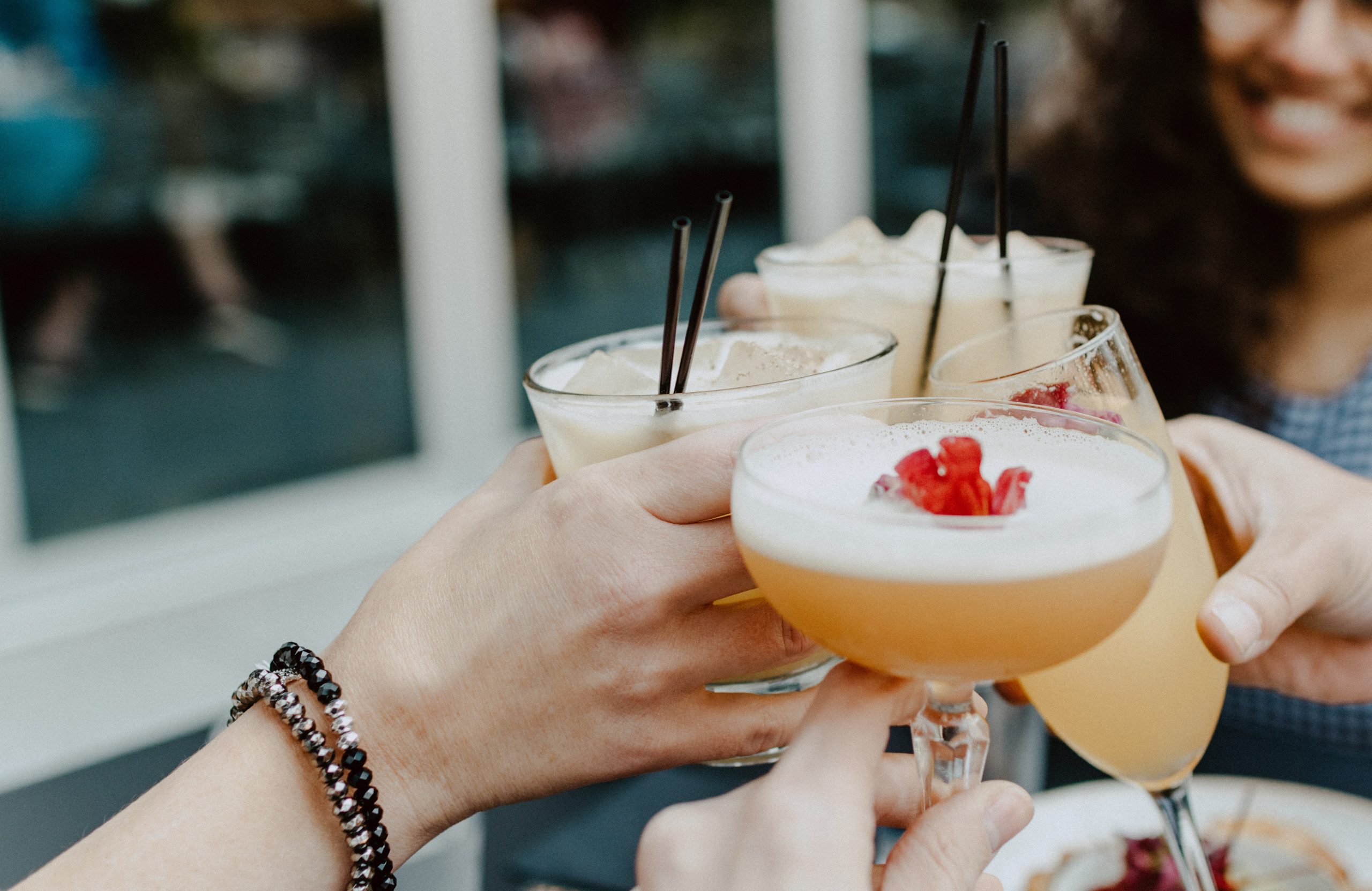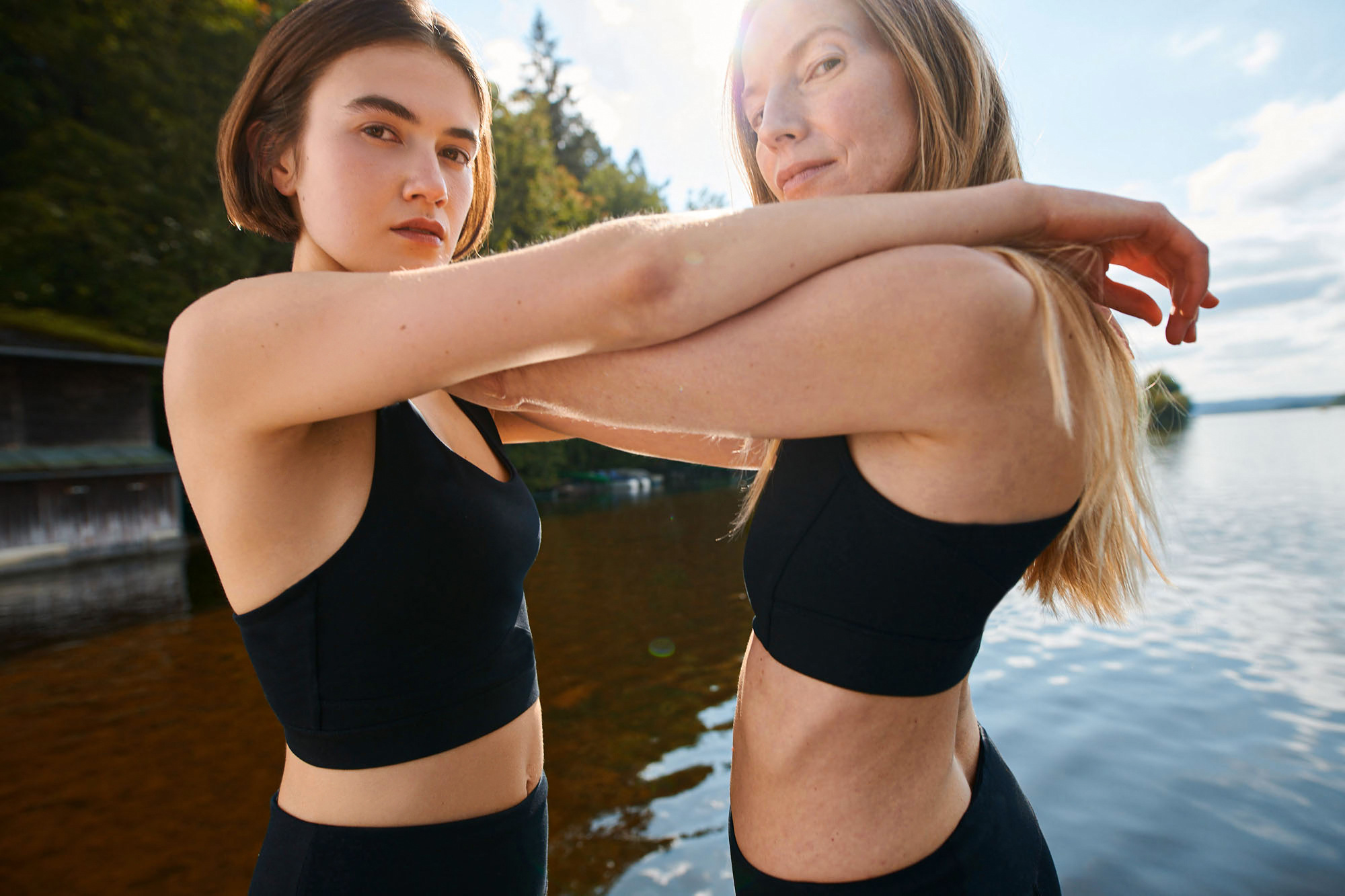Graduate and writer Amelia Reynolds embarked on a thirty-day challenge to reset her relationship with alcohol. 130 days later, she is still sober.
Falling into alcohol dependency
When I set out on my research for this article, I had no idea it would result in my transition to sobriety. I loved drinking; I couldn’t imagine giving it up. Subconsciously I knew my drinking habits weren’t ideal and that eventually I would have to address them. In my mind, though, that day was in the distant future – after I’d got all the twenty-something antics out of my system.
I don’t think my relationship with alcohol has been a typical one. In my late teens, I would dabble in the occasional bottle of Glenn’s (or whatever we could convince people to go into the shops for us to buy) with my friends. I’d have one or two drinks bought by a ‘chill’ family member at wakes or weddings, the typical alcohol consumption of a teenager in the UK.
When I went to university at 18, in a city that many consider party-central, I found myself avoiding alcohol. I’d opt to stay in, while my flatmates begged me to go and join them at one of Bristol’s many clubs.
As an anxious person, I didn’t like how drinking made me feel. Well, I hated how it made me feel the next day. I loved losing my inhibitions but would be left with horrific ‘beer fear’ the next day. This would result in sleeping the day away and missing lectures. I thought it was better if I just stayed away from alcohol altogether. In 2020, when COVID hit, I was forced to move home. With nothing to do in the day apart from watching online lectures and writing in my journal, I started to find comfort in an evening drink.
Indulging a couple of days a week turned into a bottle of wine a night. I realised my anxiety surrounding drinking was because I worried about making a fool of myself in front of others. With the strict lockdown rules now in place, I was free to indulge in alcohol with no consequences.
While others were baking, working on their fitness, or other creative pursuits, I was unravelling, locking myself in my room, drinking heavily, and doing very little else. Hungover started to be my default state until I could drink it away in the evening, rinse, and repeat.
My university work started to slip and I fell into a depression. I continued to self-medicate with drink and somehow managed to complete my degree (by the skin of my teeth).
When the lockdown lifted and life started to move on, the habits I formed stayed with me. For the last three years, I have sustained my secret drinking habits. Slyly bought wine on the way home from work and spent the evening alone in my room. Creeping downstairs in the middle of the night when the wine I had got for the evening inevitably wasn’t enough. Raiding my parents’ drinks cabinet for anything to fill the void: tiny bottles of whiskey you get with Christmas gift sets, dusty bottles of port left over from wakes.
I’d wake the next day feeling incredibly sorry for myself and determined to change. That would last about three hours until I found myself walking to the nearest corner shop to restock.
I felt like my life was in freefall; I was a recent master’s graduate, still living with my parents. I wanted to change so badly but had no idea where to start. That was when I found myself on TikTok. Intrigued, I started watching a handful of creators, struck by how similar their stories were to mine; I knew it was something I had to try.
My Journey to Sobriety
I remember the day so clearly. I woke up with a hangover slightly worse than normal, turned my face back into the pillow and willed for the headache to subside. I decided I’d had enough, that I didn’t want to keep avoiding my life by drinking every night. Today was going to be the day that I’d finally do it. I’d start my thirty days sober.
I don’t want to portray this as a simple decision, that I just sat up in bed, a smile adorning my face, and that was that. It was terrifying. I was contemplating taking away my lifeline, something that I had relied on for almost two years. I cried into my pillow that morning. I was scared, I had no idea how it was going to work or if it was going to work.
The first week was easy. I coasted on the feeling that I was doing something important, a challenge that no one else knew about. I realised I functioned better when I had a project, a clear outline of what I needed to do and guidelines to stick to.
It was hardest at night. My routine of stopping at the garage on my way home from work to buy a bottle of wine (or two) had become ingrained. I found myself on autopilot on my way home from the pub, stopping myself from crossing the road. I tried going to bed early, to shave down the number of quiet hours I would have to endure when everyone had gone to bed. This used to be my own private time – when I could sit drinking and listening to music. I told myself that as long as I could sleep through the quiet hours, I would be able to stick to my challenge.
Eventually, it got easier; the mornings felt brighter, and I was feeling better about myself. Turning down that post-work drink at the pub felt a little more natural. I found other ways to spend my evenings, putting my energy into creating things. I got into crocheting, I started playing music again, and journaling (all of which are much easier when not inebriated).
When the 31st day of sobriety finally arrived, I didn’t have the reaction I thought I would. Instead of going on a bender, making up for all the alcohol I’d forgone over the last month, I felt sad. I’d become well-acquainted with the new version of myself; I liked her. I didn’t want to enter back into the hole I felt I’d dragged myself out of.
I remember sitting in my mother’s bedroom, recounting how sobriety had changed me for the better. Then I said it, ‘I think I’m going to keep going.’ My words surprised both of us; it felt like such a big decision. What shocked me most was how happy it made me feel to say them out loud.
That day feels so long ago now. The past four months have presented a world of new experiences. My first sober concert, party, holiday, breakup, experiences that before would have translated into a drinking spree.
There have been times that I’ve faltered and considered giving in. I’ve dreamt about having a normal relationship with alcohol, being able to go for a drink with my friends and think nothing of it; but I know that’s something I can’t do.
What Is the Sober Curious Movement?
Sober curiosity? Diet Sobriety? What is this new wellness trend taking over the internet? The term refers to those who adopt a casual sober lifestyle. It’s a ‘try before you buy’ approach to sobriety, where people cut out alcohol for extended periods, only drink on special occasions, or just on weekends.
It’s not just a precursor for teetotalism, though. It’s about moderating your relationship with alcohol, how much you drink, and when you choose to do it. It’s about establishing alcohol as a supplement, not something you need, but something that adds a little extra enjoyment. It can mean whatever you want.
This approach allows people to experience the benefits of sobriety, exploring whether it’s something they could do long-term or just something they need for a detox. It can also help modify a person’s relationship with alcohol, enforcing a structure to moderate one’s drinking.
For people who are undecided about whether they want to commit to a sober lifestyle, pivoting to sober curiosity offers an opportunity for introspection, a chance to consider their relationship with alcohol.
Despite being coined in 2019 by Millennial author Ruby Warrington, sober curiosity has captivated the younger generation. Overall, Gen Z is drinking 20% less than their Millennial counterparts (Forbes).
A recent survey by The Office for National Statistics found that people between the ages of 16-24 were less likely to drink than any other age group. Statista Market Insights has reported that the non-alcoholic beverage market has been continually growing since 2014, with projections indicating that this trend isn’t slowing down anytime soon.
The options for sober or sober curious people are becoming increasingly sophisticated. Gone are the days when the only option for non-drinkers was a soda and blackcurrant – although this is still a fan favourite. Wine Enthusiast has reported that 58% of those who do drink alcohol are often choosing alcohol-free alternatives.
What Has Catalysed This Phenomenon?
Why are so many people, particularly those of the younger generation – the demographic historically associated with excess drinking and partying – choosing a lifestyle free of alcohol?
The rising accessibility of wellness content online has piqued the interest of Gen Z consumers; young people are taking accountability for their well-being. Long gone are the days when the only place to socialise was the pub.
Now sober nights out are all the rage. From bowling to escape rooms to sober – silent discos, the growing popularity of alcohol-free events has made entering nightlife sans alcohol a much more appealing concept.
One of the greatest contributing factors to the sober movement has been the transparency of the social media influencers at its head. One of these is Kristin Lamb, who runs the Instagram blog Sober and Curious, where she recounts her sobriety experience and shares tips and recommendations with her followers.
“’I’d been binge drinking from a young age, and while most of my friends grew out of it, I never did,” she says. “I couldn’t see it at the time, but most of my life revolved around when the next drink was coming.”
“After one too many horrendous hangovers, my partner and I decided to go cold turkey (please don’t do this if you are drinking a substantial amount every day as it could be dangerous – seek medical advice) and I never looked back.”
For Kristin, the increasing normalisation of sober socialising has helped her recovery. She explains: “There has been massive progress in a short space of time, with more and more emerging alcohol-free products on the market and pubs/bars/restaurants adopting ‘low and no’ drinks onto their menus. There is still a huge way to go but the more we talk about sobriety (or just cutting down), the more normal it will become.”
130 days on, sobriety is great. I’ve saved money, I have more time for work, I feel healthier, I look healthier.
The greatest gift has been the perspective it’s given me. Allowing me to step out of the drunken haze I’ve found myself in for the last two years. Pushing me out of apathy and into discomfort, forcing me to face the things that I had turned to alcohol to avoid.
I’m still navigating my sobriety. I worry for the future, whether I’ll be able to maintain the fledgling enthusiasm I have for life sans alcohol. But for now, I’m happy to report that it’s the best thing I’ve ever done.
Amelia Reynolds is a 23-year-old writer from South Wales. She’s a recent graduate with a master’s in international journalism. Follow Amelia on Instagram at @meels0nwhee1s






